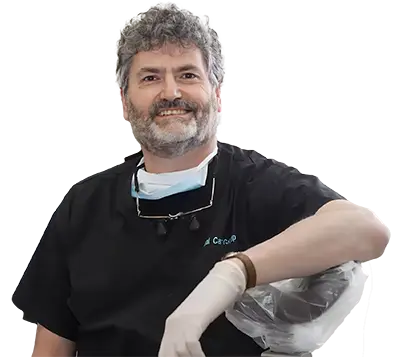It’s something we’ve all heard throughout our childhoods: “Don’t eat that – it’ll rot your teeth!”
The thing is, it doesn’t only apply to children who have a sweet tooth – the foods you eat can impact your oral health, no matter your age!
Cutting these foods out is a relatively simple change you can make that can have a dramatic effect on your oral health, dramatically lessening the risk of developing cavities, tooth decay and gum problems.
Likewise, there are also foods that can improve your teeth if you eat them.
And today, our Armadale dentists are sharing some of the most common ones!
What you eat matters to your oral health
Think before you eat!
Your teeth are tough, but they aren’t invincible. Over time, what you eat can affect the overall health of your gums and teeth.
In some cases, they can damage your teeth by physically wearing them down:
- A diet that has highly-acidic food like citrus fruit can cause erosion of teeth
- Eating very coarse foods
Other types of food and drink can weaken your teeth and gums in other ways – for example, alcohol dries your mouth out, which can lead to a range of gum conditions.
High carbohydrate biscuits and crackers can lead to deposits of these foods being stuck and jammed in and around your teeth. These can be broken down by the bacteria in plaque, leading to acids and then cavities.
High sugar foods are even worse and can also lead to cavities.
What you put on your plate can impact your teeth and gums – this is why good nutrition is so important for healthy teeth and gums.
In many cases, turning your oral health around starts by changing your diet.
What foods may prevent tooth decay? Best food for your oral health
Our Armadale dentists know what you’re here for – you want to improve your dental health, and avoid any unexpected trips to a dentist.
Specifically, you want to know if there are any foods that you can incorporate into your daily diet that can help reduce plaque or otherwise benefit your oral health.
What are the best fruits and vegetables for your teeth?
The crunchier, the better when it comes to selecting the best fruits for your teeth.
That means things like:
- Apples and pears
- Raw carrots and celery
- Cucumber slices
The idea is that crunchy fruit and veg acts as a sort of toothbrush, scraping away some harmful acids and bacteria from your teeth.
Not only that, but these foods are also a great source of Vitamin C and other nutrients, as well as fibre.
Fibre-rich foods – like fruits and vegetables – can also help with saliva production.
This is instrumental in rinsing away bacteria and harmful particles from your mouth (and therefore also helping to prevent tooth decay!)
Nuts
Go nuts for nuts!
Not only are they a great alternative to sugary snacks, but nuts are also a great source of vitamin D and calcium – two things that can strengthen and fortify your teeth.
And just like crunchy fruit and veg, nuts require extra saliva to swallow – something that’s good for your teeth, as it washes away food scraps and helps “wash” your teeth.
If you’re looking for a replacement for sugary treats or high carbohydrate starchy foods, nuts (in moderation) are a great start!
Calcium-rich foods
Calcium is key to strong bones. What isn’t quite as commonly known is that it has the same effect on your teeth!
Specifically, calcium strengthens the enamel – the hard exterior of your teeth. Not only that, but it can also contribute to the health of your gums for a healthier mouth overall.
Want to make your teeth stronger and more resilient? You can start by working calcium-rich dairy products into your diet such as:
- Low-fat milk
- Yogurts
- Cheese
Proteins
Of course, it isn’t just calcium that can strengthen and fortify your teeth – protein is another thing that you should try to include more of in your diet!
Just like calcium, protein is a crucial compound in healthy growth, as well as healing following damage.
As such, it’s crucial for your oral health that you include a healthy amount of calcium in your diet.
That means including more protein-rich foods such as poultry, fish and eggs.
Vegetarian or vegan? Don’t worry – there are plenty of protein supplements you can buy to make sure you’re getting your share of this vital compound.
Worst foods for your oral health
Of course, not all food is quite as good for your oral health – there are also many different types of food that can actually hurt your teeth.
Hard food
Okay, we know we said that crunchy fruit and veg are good for you. However, it’s entirely possible to have too much of a good thing!
Food that’s too hard can have the opposite effect, damaging your teeth and possibly even causing fractures and cracks if you chow down too hard.
As much as possible, avoid excessively hard and crunchy food if you want to avoid causing damage and breaking your teeth.
That means if you’re a fan of hard lollies, you might want to reconsider your choices during your next supermarket shop.
And while we’re on the topic of lollies…

Lollies, sweets and high carbohydrate snacks and biscuits
In layman\’s terms, this is how your favourite sugary treat leads to tooth decay:
Lollies contain sugar. Sugar feeds the bacteria in your mouth. And that, in turn, feeds plaque, which eventually results in tooth decay.
The key to stopping this?
- Brushing regularly to remove this bacteria and plaque
- Eating less sugary and high carbohydrate food
Obviously, you can’t carry a toothbrush everywhere – that’s why it’s best to limit your intake of these foods.
Food that gets stuck on your teeth
Sugar isn’t the only thing that feeds bacteria – so too do food particles.
As such, you’ll want to avoid food like:
- White bread
- Potato chips
- Biscuits
Simply put, these foods tend to get stuck on or between your teeth, providing ample sustenance to the bacteria in your mouth.
And if you do continue to eat these, be sure to wash them down with water, follow up with something crunch or brush and floss immediately afterwards!
Foods high in citrus
As we mentioned above, citrus food can be highly acidic.
This can cause the enamel in your teeth to erode, resulting in sensitivity to hot and cold foods as well as increased vulnerability to cavities.
We suggest moderating your intake of oranges, lemon and lime as much as possible.
What’s more, don’t brush your teeth immediately after – they’re sensitive after eating acidic food, so you’ll want to give them around 30 minutes to recover.
Protect your teeth with our Armadale dentist
Changing your diet can help protect your teeth – however, that isn’t all you can do!
Sometimes, you may need professional advice regarding your teeth. In others, it could be a case of needing professional intervention to stop tooth decay in its tracks.
Whatever it is, our Armadale dentist can help!
Look after your teeth – contact our dentist in Armadale on (03) 9509 1500 or book an appointment with us today.

